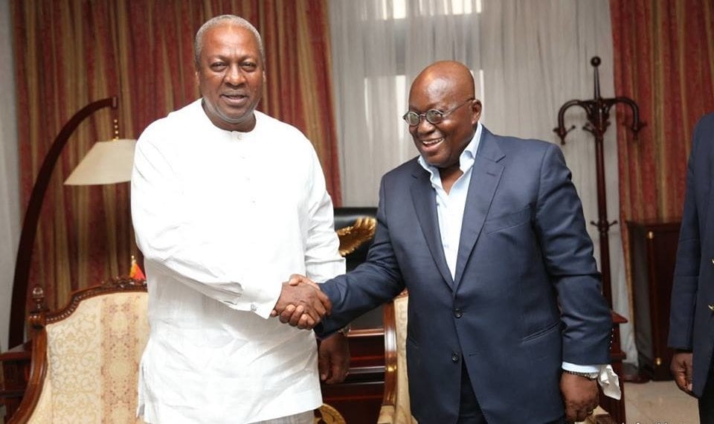Ghana has witnessed the conduct of Presidential Debates prior to Presidential Elections since 2000. Yet, serious debates arise about debates, in the lead up to elections, where a sitting President is also a flagbearer of a political party.
It is to be admitted that, regardless of how a student gets prepared for examination, no one is actually interested in writing exams. But, to write or not to write an exam, shouldn’t be a debate for any serious student wishing to be promoted. Similarly, in as much as sitting Presidents may not be too keen on debating, it is in our own enlightened interest as a people to ensure that, to debate or not to debate, is never a choice that Presidential Hopefuls must make. It should be the call of the ultimate repository of the sovereign power of the land.
The IEA held the first ever Presidential Debate in Ghana in 2001. But in 2000, there was no sitting President that contested the Presidential Elections. So, being the first time, it was almost a mere Question and Answer Series for the many Presidential Aspirants who emerged after the exit of Jerry Rawlings.
In 2004, the sitting President boycotted the Presidential Debate but the opposition wanted it. In 2008, there was no sitting President that contested the Presidential Elections. So, the flagbearers of the two main parties participated in the debate.
In 2012, the President boycotted the debate, but was called to eternity shortly afterwards. Realizing, that there was no time to campaign, his successor made a u-turn and participated in the debate. That was actually the first time a sitting President participated in the debates.
In 2016, the sitting President who had participated in the 2012 debate, boycotted the debate, even though the opposition wanted it. In 2020, some officials of the ruling party have said it emphatically that, the President won’t be part of any debate on infrastructure. But the opposition wants it.
Why do sitting Presidents fear to debate? Is this a tacit admission of non-performance by those who govern us? Why do opposition leaders clamor for debates when they are in opposition and develop cold feet to debates when they win power? Is it because talk in opposition is cheap?
Is it fair to the good people of Ghana for supporters of political parties to advance cogent argument in favor of debates when in opposition, and to turn around to argue against debates when they are in power?
Should the decision to mount an important accountability platform of debates, be left entirely to the prerogative of those who seek to exercise fiduciary trust of ordinary people?
Should the relevance of Presidential Debates be interrogated only from the myopic and selfish perspectives of votes? How about their role in calming down political tension, engendering issues-based discussion, promoting civil discourse in the body politic and helping electorates to exercise rational choice during voting?
All well meaning Ghanaians should be sad about the way and manner we have mortgaged our drive towards democratic maturity to a few self-seeking, self-perpetuating and self aggrandizing political cabals.
Those calling for a debate today, should remember what they said about debates in 2016. Similarly, those saying they won’t debate, should also remember what they said about debate in 2016, when they needed power.
Politicians in Ghana should stop playing “ajana one-ajana-two” with the minds of Ghanaians and desist from overly exploiting our gullibilities and the plague of excessive partisanship that sometimes makes it difficult for some people to be fair in their thinking.
There should be an elite or popular consensus on what can be evolved and institutionalized on our political calendar to deepen accountability, beyond the mere conduct of periodic “choiceless” elections, where people sometimes vote, without necessarily choosing.
Some Serious Accountability Mechanisms including the conduct of Presidential Debates, have somewhat already evolved and must be institutionalized. Winning elections must not be as a result of insults, mudslinging and vituperations. It must solely be as a result of a healthy contest of ideas in an institutionalized debating culture, in the lead up to elections. It is not about what appeals to the whims and caprices of any politician, whether in government or in opposition. It must always be what is in the interest of Ghana.
Yaw Gyampo
A31, Prabiw
PAV Ansah Street
Saltpond
&
Suro Nipa House
Kubease
Larteh-Akuapim
Latest Stories
-
Amerado shines at 2nd edition of ‘My Motherland’ Concert in Ejisu
4 minutes -
JOY FM’s 90s Jam draws mammoth crowd with unmatched entertainment
8 minutes -
Daily Insights for CEOs: The power of strategic networking for CEOs
39 minutes -
Court sets Jan. 6 to rule on NPP’s application to set aside injunction against Akwatia MP-elect
1 hour -
GPL 2024/25: Bechem United ease past leaders Heart of Lions
1 hour -
Edem Agbana expresses readiness to begin work as MP after completing registration
3 hours -
Katamanto fire: Gov’t must reconstruct the market, not the traders – Abuakwa South MP-elect
3 hours -
High Church of Africa inaugurates mineral water factory on 2nd anniversary
3 hours -
Ablekuma North results collation suspended over another disagreement
3 hours -
Kwakye Ofosu says 10 Heads of State will attend Mahama’s inauguration
4 hours -
Rwanda-backed rebels seize key town in DR Congo
4 hours -
Nominate Alban Bagbin as Speaker of 9th Parliament – Mahama tells NDC caucus
5 hours -
Russian newspaper says its reporter killed by Ukraine drone strike
6 hours -
Hamas releases video of Israeli hostage Liri Albag as ceasefire talks resume
6 hours -
New York becomes first US city with congestion charge
6 hours

